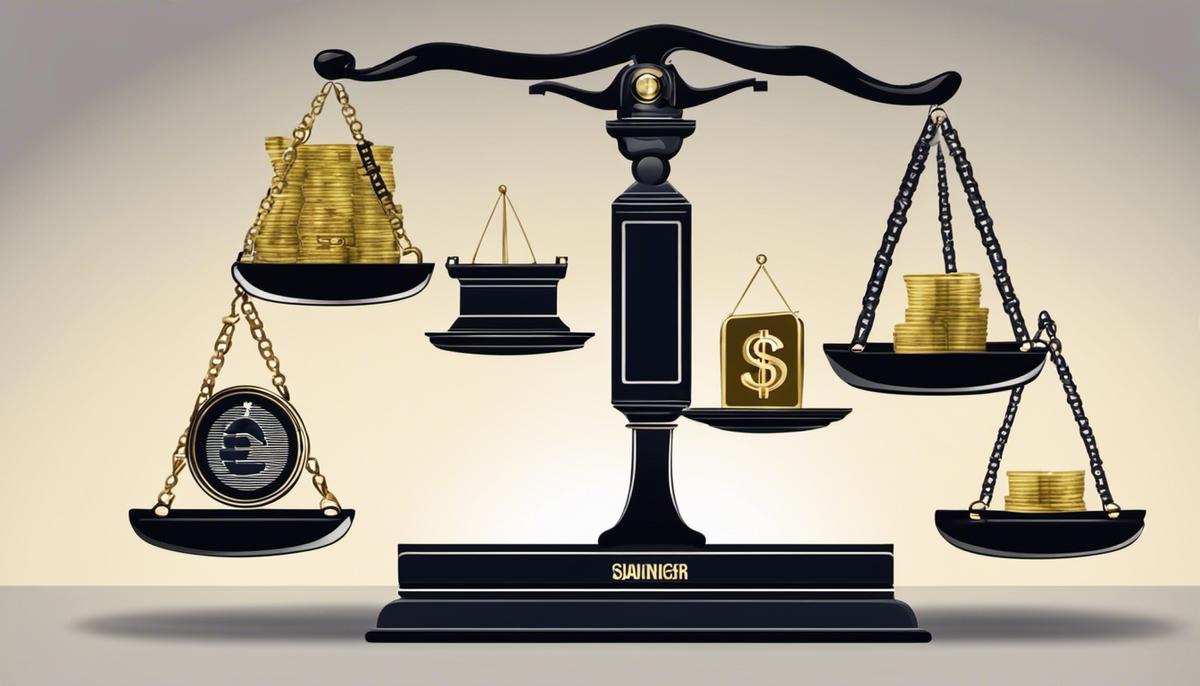In today’s evolving corporate landscape, understanding the roles and responsibilities of key positions within an organization has never been more important. Among these, the roles of managers and directors significantly influence a company’s performance and direction. Though they might seem interchangeable at first glance, managers and directors occupy distinct positions in a corporate hierarchy, each with a unique set of duties, decision-making capacity, and compensation structure. This deep-dive insight will clarify the roles of a manager and a director, emphasizing the hierarchy and seniority, decision-making power, and salary structuring associated with each title. Throughout this exploration, we will shed light on the skills and experiences required for these roles, the types of decisions they are entrusted with, and the impact these decisions can have on an organization.
Understanding Roles: Manager and Director
Roles and Responsibilities of a Manager
A manager’s primary responsibility is to ensure the smooth functioning of a team or department within an organization. This involves planning, coordinating, and directing activities that align with the company’s objectives. Managers also play a pivotal role in the career development of their team members by providing guidance, feedback, and opportunities for professional growth.
Managers often report to directors or top executives and are directly responsible for the performance of their team. They need to be effective communicators, able to motivate their team, and must possess a strong understanding of their company’s operations.
Managers have various duties, including setting clear goals and deadlines, developing and implementing policies, procedures, and workflows, and nurturing a positive working environment. They also monitor the team’s performance, prepare and present reports to upper management, and may be involved in hiring.
Roles and Responsibilities of a Director
A director operates at a higher level in the organization’s hierarchy and usually oversees several managers or entire departments. They are entrusted with making strategic decisions, setting objectives and policies, and ensuring their areas of responsibility are aligned with the company’s mission and vision.
Directors report to the executive team or sometimes to the board of directors and have a broader perspective on company operations. For this reason, they are expected to think strategically, analyze large amounts of data, solve complex problems, and have excellent leadership skills.
Directors typically handle high-level management tasks like coordinating and directing the company’s financial goals, plans, and budgets. They participate in key decisions as a member of the executive management team, review and analyze reports, proposals, and performance data. Also, they might play a role in networking and establishing relationships with other industry leaders.
Differences in Skills Required
The skills required for managers and directors differ due to their distinct roles. Managers ideally possess strong people skills, including effective communication, conflict resolution, and ability to inspire and motivate their team. They need a keen understanding of the day-to-day operations and a hands-on approach to problem-solving.
On the other hand, directors require strong leadership and strategic planning abilities. They need to have a thorough understanding of the industry, competitive landscape, and an ability to foresee market trends. Directors also need excellent relationship-building skills as they often interact with other industry top executives, clients, or partners.
In the corporate world, the roles of managers and directors play a crucial part in an organization’s success. While they both provide leadership and strategy, managers have a tactical, team-focused role, and directors have a broader, company-wide strategy and responsibility.

Hierarchy and Seniority: Manager vs Director
Deciphering the Corporate Hierarchy
Reflecting the flow of authority, the structure of a corporation is typically organized in layers, with directors finding their place higher up the ladder than managers. They both provide key leadership but the expanse of their oversight can often be vastly different. This position in the hierarchy not only affects their day-to-day activities but also shapes their long-term strategic responsibilities.
Roles and Responsibilities of a Manager
A manager is generally responsible for overseeing the performance of a group of employees or a particular department within an organization. Their duties often include implementing the company’s policies, assigning and tracking tasks, and ensuring that their team meets business goals. Managers act as a bridge between the employees and the higher leadership, sharing departmental updates, challenges, and achievements. They may also be involved in hiring, training, and setting salaries for team members.
Roles and Responsibilities of a Director
A director generally oversees an organization’s strategic planning, budgetary decisions, and broader business operations. They may have multiple managers reporting to them, each of whom may be in charge of different departments or teams. Their role necessitates a bigger picture perspective, often looking ahead for the business and making decisions that affect the organization’s long-term success and stability. Many directors have the responsibility of creating strategies that align with the company’s vision and mission.
The Journey from Manager to Director
Though the journey from manager to director may vary between organizations and industries, it typically involves a series of progressive experiences and an expanded scope of leadership. Usually, managers need to show consistent performance, strong leadership skills, and the ability to think strategically to reach a director position.
One common prerequisite for becoming a director is extensive management experience. This often includes experience in managing teams, budgets, and operations. Other important qualifications include a strong understanding of the industry, superior communication skills, and the ability to effectively execute strategic plans.
Many companies also value formal education, like a Master’s degree in Business Administration (MBA), as it offers broad business knowledge and leadership training. Additionally, having a proven record of achievements as a manager, demonstrating the ability to handle increased responsibilities, and showing adaptability to change are other factors that might increase the chance of being promoted to the position of a director.
To conclude
Both managerial and directorial roles involve facets of decision-making and leadership, yet they each have distinct focal points within their respective hierarchies. A manager’s scope of work predominantly revolves around guiding the day-to-day operations within their specific team or department. On the other hand, the responsibilities of a director encompass a more expansive strategic overview of the organization’s objectives. Both designations hold significance in facilitating the company’s growth and operational success, with their inputs and viewpoints greatly contributing to this process.

Decision-making Power: Managers and Directors
The Distinction in Decision-Making Power: Manager Vs. Director
Both managers and directors within organizations hold decision-making authority, but the nature and extent of the decisions they make differ significantly. A manager’s decision-making responsibility mainly addresses the operational aspects of their respective team or department. Their responsibilities may include task allocation, deadline setting, performance evaluation, and swift resolution of immediate issues or conflicts within the team.
Impact of Decisions on a Company
The decisions made by both managers and directors have profound impacts on a company’s performance, although the scale and timeframe of these impacts differ. A manager’s decision can quickly affect team morale, productivity, and potentially customer satisfaction. For instance, poorly allocated tasks or unrealistic deadlines may cause employee burnout or missed deliverables, negatively affecting both team and company performance.
Accountability in Roles
Responsibility and accountability come with the territory of being either a manager or a director. Managers are accountable for the performance of their teams. They are typically the first point of contact for any issues or challenges that arise among their team members. They bear the responsibility to foster a conducive working environment and to meet the targets set for their team.
Impact of Decisions on a Company
In contrast, a director’s decisions contribute to shaping the company’s long-term trajectory. These decisions, such as the implementation of a new business strategy or a significant budget allocation, can either catapult the company into growth or drag it into losses and even insolvency. Such high-stake decisions often require careful thought, planning, consultation, and sometimes even approval from the board.
Unified Role Responsibilities
Directors shoulder a wide range of responsibilities, often having a broader scope compared to managers. At the helm, they not only ensure that the company’s strategic plans align with its mission and objectives, they are also in charge of executing these plans effectively. Mistakes weigh heavily on them as they are held accountable for any strategy failures or financial misses. Reporting directly to the company’s board and shareholders, they must consistently demonstrate progress and justify their decisions. Therefore, directors’ sphere of accountability extends beyond their immediate department, encompassing the entire organization.

Photo by austindistel on Unsplash
Salary and Benefits: Manager vs Director
Comparative Salary Breakdown
On the front of salary and compensation, the distinction between a manager and a director is quite explicit. While specific figures might fluctuate based on variables such as the company’s size, the industry it operates in, as well as the geographic area and years of experience, directors generally command higher base salaries than managers, reflecting the weight of their responsibilities and decision-making authority.
The U.S. Bureau of Labor Statistics, as of 2020, reported the median annual wage for management roles to be $109,760. However, this figure includes roles ranging from supervisor to executive positions. Diving deeper into specific job titles or looking at different industries, the salary discrepancy becomes more evident. For example, according to Payscale’s survey in 2021, a general operations manager earns an estimated median income of $64,293 while an operations director makes about $105,263 annually.
Bonus Potential
Bonuses and incentive programs also contribute to the income disparity between managers and directors. Often a significant component of a director’s compensation package is tied to company performance, with bonuses or stock options. This ties the directors’ personal financial success to that of the company, further motivating them to drive business growth. Managers, on the other hand, may not have as much of their compensation tied to company performance, instead receiving regular bonuses based on performance or completion of targeted objectives.
Benefits Comparison
Beyond salary and bonuses, directors often have a more extensive benefit package than managers. This can include a larger employer contribution to retirement plans, higher valued health insurance plans, expense accounts, and access to executive health programs or services. Managers typically receive a standard benefits package with health insurance, a retirement plan, and potentially some company stock options.
Influence of Company Size and Industry
The size of a company and the industry it operates in can heavily influence salary, bonus, and benefit structures. Larger organizations or those in more competitive, high-revenue industries tend to offer higher compensation packages for both managers and directors. Companies in technology or finance, for instance, often offer large bonuses and stock options to directors due to the high-stakes, competitive nature of these sectors.
In smaller companies or in lower-revenue industries, compensation can be more modest. However, these companies may also offer other benefits such as a more flexible work environment or greater potential for professional growth.
Summary
While there’s a lot of variability based on company size, industry, and individual performance, directors typically earn higher salaries, receive larger bonuses, and have more extensive benefits packages due to their elevated level of responsibility compared to managers.

Unraveling the intricacies of the roles held by managers and directors provides a window into the internal mechanics of an organization’s structure and operation. These positions hold substantial influence, steering the company’s trajectory and significantly affecting employees’ professional experiences. The insights found in this discussion aid not only those pursuing careers in management, but also those seeking a deeper understanding of corporate strategies and dynamics. By comprehending these roles—with all their inherent duties, decision-making power and compensation differences—one can better appreciate the complexities of corporate operations, and the importance of having experienced, capable individuals at the helm.

